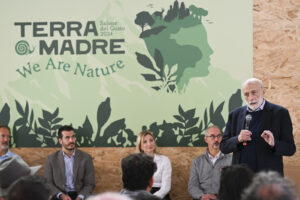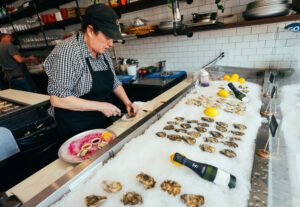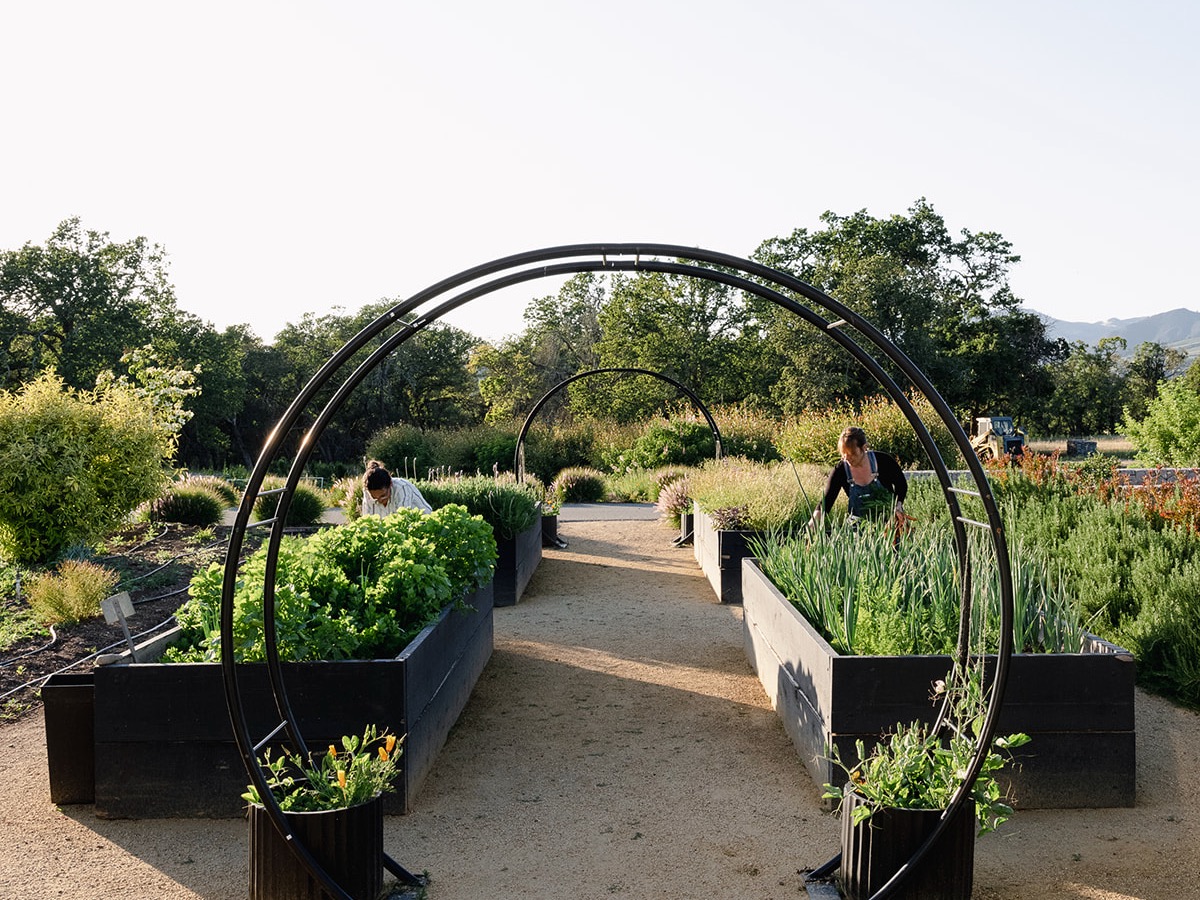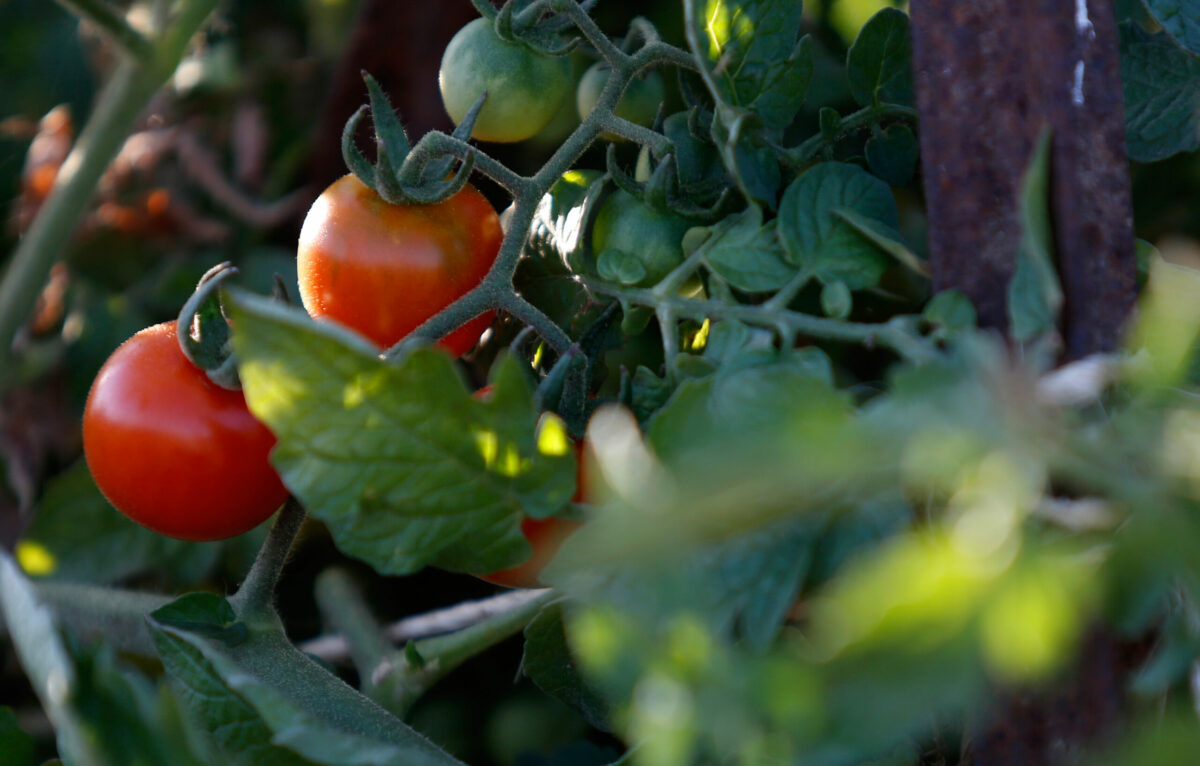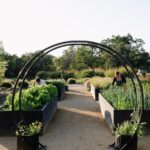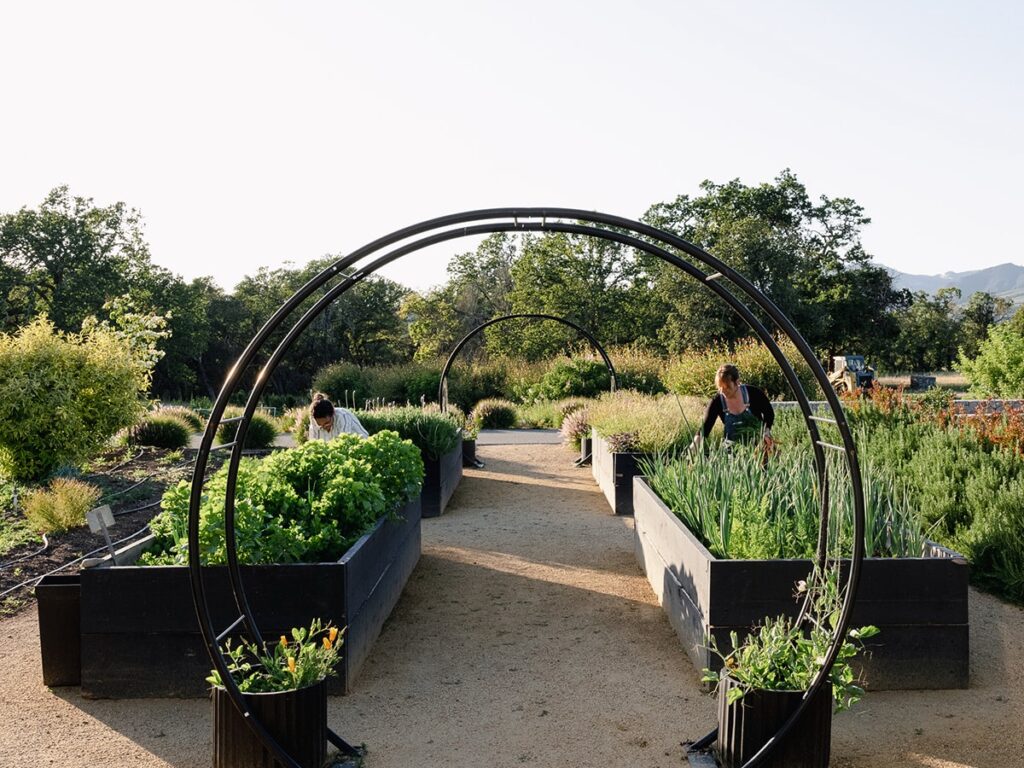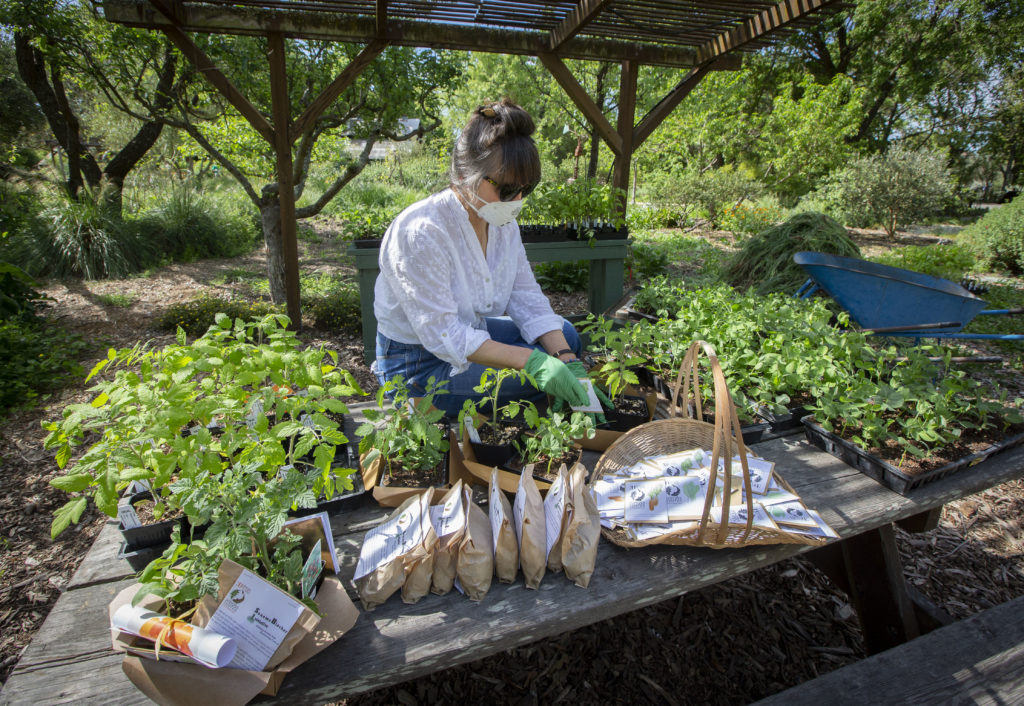Looking to start a vegetable garden in Sonoma? Get insider tips from a professional gardener and learn how to grow your own food.
Professional gardener Rachel Kohn Obut loves vegetables, fruit trees, flowers, native species— anything that brings nourishment and beauty. She loves plants, and she understands them, too. She has studied permaculture and landscape design and served as farm manager at both Sweetwater Spectrum in Sonoma and Flatbed Farm in Glen Ellen. From 2018 to 2023, she ran her own vegetable and flower farm on a leased acre of land in Napa.
Today, Obut blends her agricultural and design backgrounds with her interest in native ecosystems to consult on edible gardens and residential landscapes in both Napa and Sonoma (littlemoonfarmnapa.com). She also runs her own backyard farm, selling cut flowers and veggie starts, including ‘Mara des Bois’ strawberries (her all-time favorite), ‘Jimmy Nardello’ sweet peppers, and the alluring ‘Piracicaba’ sprouting broccoli.
“There’s always more to learn in gardening,” Obut says. “I think the most exciting part is trying new varieties of vegetables and finding new ones that do well.”
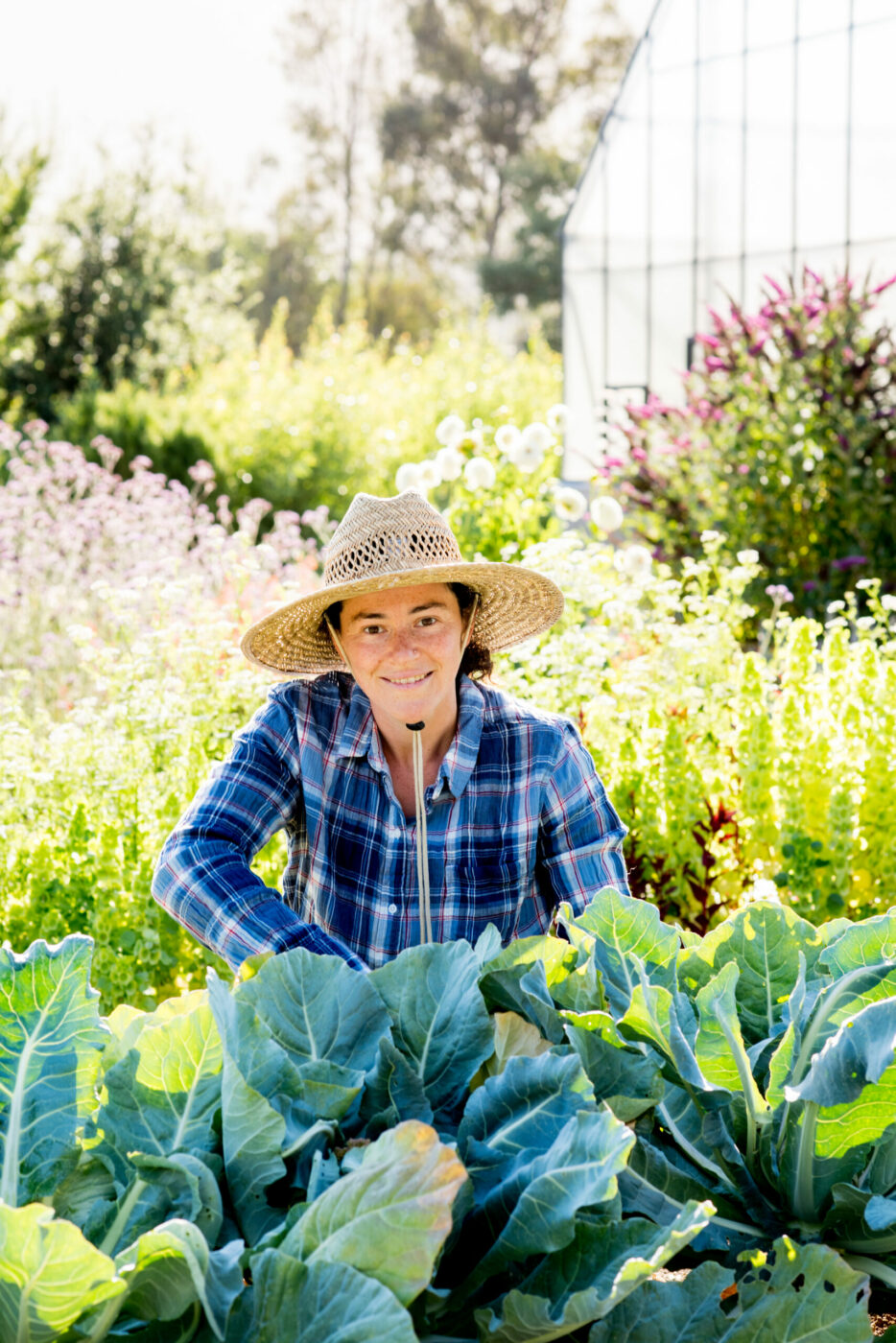
Rachel Kohn Obut’s tips for starting a vegetable garden in Sonoma:
Envisioning your garden
The spring is just really fun for visioning and planning. What do you want to do with your garden space? It’s the most exciting time of year for me. Once the danger of frost has passed, which is usually by mid-April—though the last few years we’ve sometimes had some later frost in parts of Sonoma County—and up until mid-May is the optimal time to be putting all kinds of plants in the ground.
Summer crops
Tomatoes, summer squash, basil, and cucumbers are the easiest ones to get started with. Varieties that do well in Sonoma Valley will be different from those that do well near the coast. For example, with tomatoes, if you’re in a cooler climate, cherry tomatoes will ripen faster and be more successful, whereas if you’re in Sonoma Valley or Healdsburg, you’ll have better success with all the heirlooms. ‘Copia’ tomatoes are an open-pollinated variety named for Copia in Napa, where I now consult, that has been one of my favorites for a long time.
View this post on Instagram
Startup basics
I think having a drip irrigation setup is really useful. Hand watering is hard to do. Apply the best compost that you can, and supply a balanced vegetable fertilizer yearly. If you start to see your crops not doing as well from year to year, it could be a fertility imbalance occurring over time that can be easily corrected, or it could also be a soil-borne fungal disease. To identify the problem, get a soil test.
Relishing home-grown food
My enjoyment of food and eating and cooking definitely got me into farming in the first place, and has kept me farming. Food is a basic need, and growing vegetables feels like a really wholesome way to connect with the community. Having your own home garden can help you tap into that. Plus, food that’s super fresh and grown from your own garden is healthier and tastes better and can inspire your cooking.




